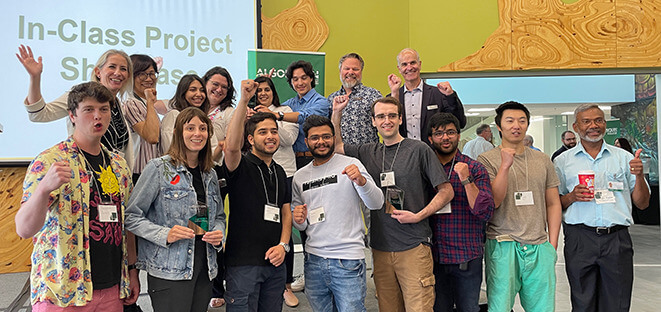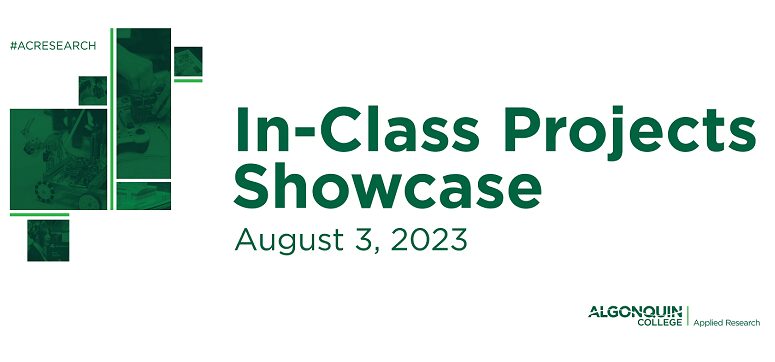Posted on Wednesday, September 6th, 2023
OTTAWA (September 7, 2023) — Algonquin College and Field Effect, a global cybersecurity solutions and services provider, are excited to announce they’ve formed a strategic partnership to transform cybersecurity education.
Core to the partnership is Field Effect’s Cyber Range, the company’s purpose-built cybersecurity educational platform. From training and simulation to testing, the platform’s interactive controls replicate real-life networks in a controlled virtual environment, while its course and simulations library empowers users to evolve from junior practitioners to expert security operators. Read more >
Posted on Thursday, August 3rd, 2023

Students from the first, second and third place teams celebrate their wins with Kristine Dawson, Philip Dawe and Jed Looker, coordinator for the Interdisciplinary Studies in Human-Centred Design program.
Learners from the Interdisciplinary Studies in Human-Centred Design program took first place for their project, Democracy Worldview, at the In-Class Projects Showcase, held at the Ottawa Campus on Aug. 3. The research project centred on how to prevent the erosion of trust in elections, as well as how inaccurate information can be addressed in the electoral process to build public trust. Second place went to We Vibe Phase 2, with third place going to AI Brand Recognition Machine Learning Project.
At the event, more than 50 student teams exhibited their applied research projects, ranging from robotics, artificial intelligence, fundraising, civic engagement and much more. The projects were created in collaboration with industry, institutional and community partners, bridging the gap between education and employment while providing a glimpse into the future of technology and the current state of innovation.
Read more >
Posted on Tuesday, August 1st, 2023
 Learners in Algonquin College’s Computer Programming program are working to modernize community communications in rural Ontario. Their project will be one of the many to be displayed at the In-Class Projects Showcase on Aug. 3.
Learners in Algonquin College’s Computer Programming program are working to modernize community communications in rural Ontario. Their project will be one of the many to be displayed at the In-Class Projects Showcase on Aug. 3.
Students Maria Boulescu, Zachary Bimson, Changhwan Lee, Fabrizio Ruggirello and Davin Rousseau are developing a web-based “bulletin board” — developed to expedite and simplify community message posting — which is being designed for use in Vernon, Ont.
Read more >

